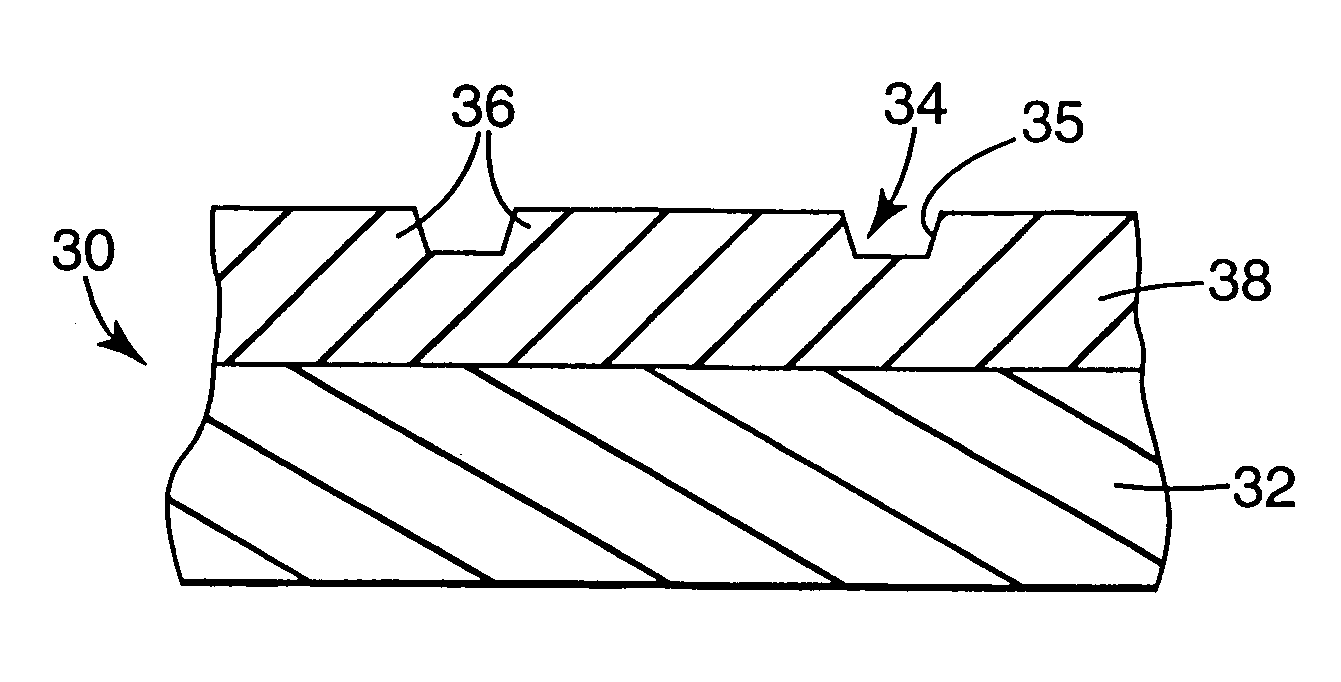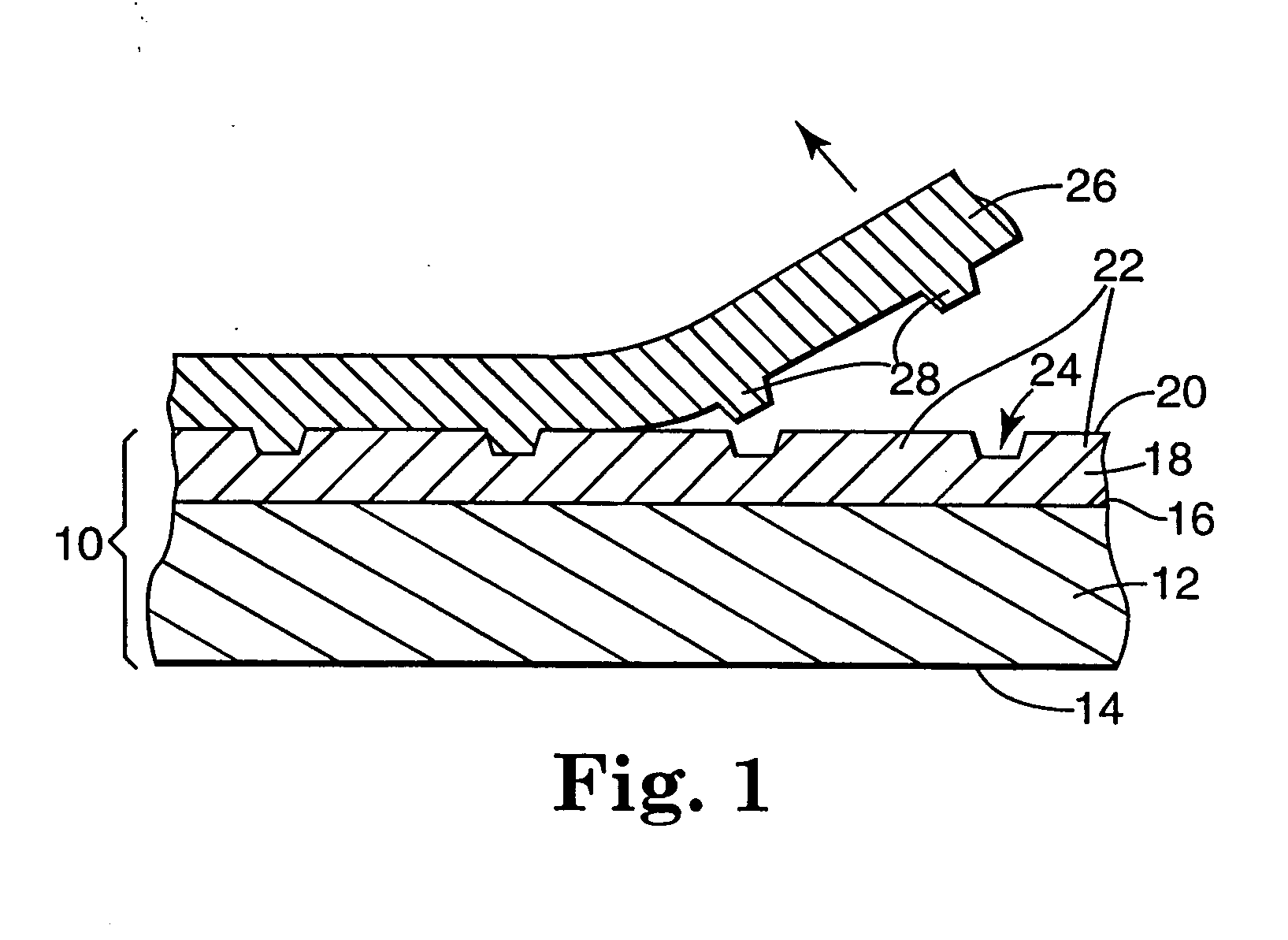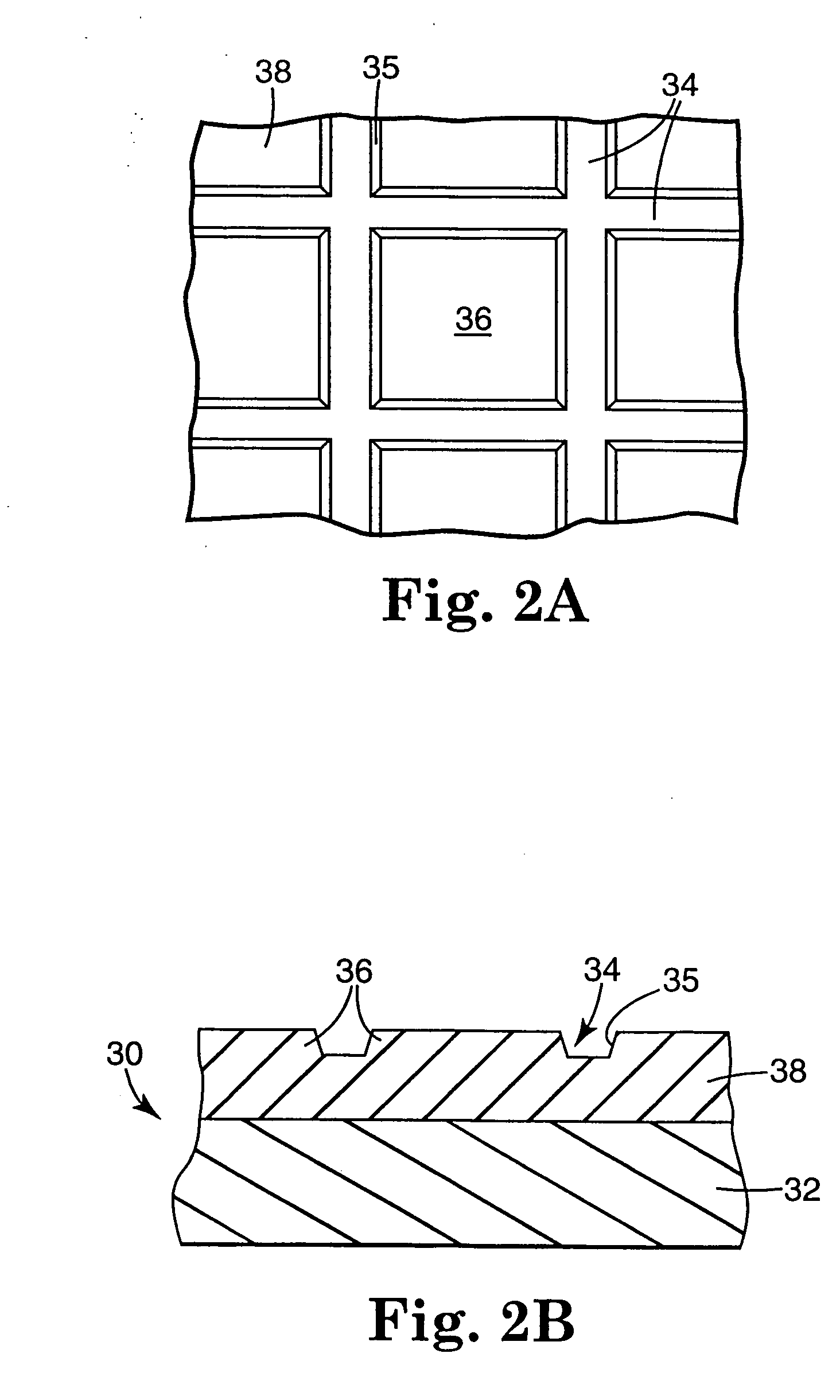Adhesive-backed articles
a technology of adhesives and articles, applied in the field of adhesive-backed articles, can solve the problems of affecting the positioning of articles, difficult reapply of articles, and difficult placement of films into specific positions prior to the formation of a bond between adhesives and substrates, etc., and achieve the effect of allowing the positioning of articles without adversely affecting the appearance of articles
- Summary
- Abstract
- Description
- Claims
- Application Information
AI Technical Summary
Benefits of technology
Problems solved by technology
Method used
Image
Examples
examples
Surface Roughness Test
[0075] The surface topography of a film is measured using the RST Plus surface profiling system available from Wyko Corporation in the vertical scanning interferometer mode (VSI) at a magnification of 1.2× and a pixel size of 13.64 μm.
[0076] The system uses an interference microscope and a computer algorithm to analyze the surface. In the system, a white light beam passes through a microscope objective to the sample surface. A beam splitter reflects half of the incident beam to a reference surface. The beams from the sample and the reference surface recombine at the beam splitter to form interference fringes which are alternating light and dark bands that are visible when the surface is in focus. The reference arm containing the interferometric objective moves vertically to scan the surface at varying heights using a linearized piezoelectric transducer to control the motion. The interference fringes for white light are present only over a very shallow depth ...
examples 1-11
Examples 1 -11, produced in accordance with the present invention, exhibit good appearance, good air bleedability, and at least fair slidability. The appearance was determined by visual examination with the unaided eye. A good appearance result indicates no observable underlying structure. A poor appearance results if the pattern is visible. With respect to Examples C1-C3, the average volume per any 500 μm diameter circular area is indeterminate since some 500 μm diameter circular areas do not have channels. Additionally, Examples C1-C3 have poor appearance indicating that patterns created by the channels are visible with the human eye after application.
[0097] Samples from each Example measuring approximately 2.54 cm by 2.54 cm were then laminated to a clean glass plate using a plastic squeegee. The samples were then analyzed for surface roughness and periodicity according to the procedure described above. Example C4 is the vinyl film with no adhesive laminated to it, and C5 is the ...
PUM
| Property | Measurement | Unit |
|---|---|---|
| Fraction | aaaaa | aaaaa |
| Fraction | aaaaa | aaaaa |
| Fraction | aaaaa | aaaaa |
Abstract
Description
Claims
Application Information
 Login to View More
Login to View More - R&D
- Intellectual Property
- Life Sciences
- Materials
- Tech Scout
- Unparalleled Data Quality
- Higher Quality Content
- 60% Fewer Hallucinations
Browse by: Latest US Patents, China's latest patents, Technical Efficacy Thesaurus, Application Domain, Technology Topic, Popular Technical Reports.
© 2025 PatSnap. All rights reserved.Legal|Privacy policy|Modern Slavery Act Transparency Statement|Sitemap|About US| Contact US: help@patsnap.com



